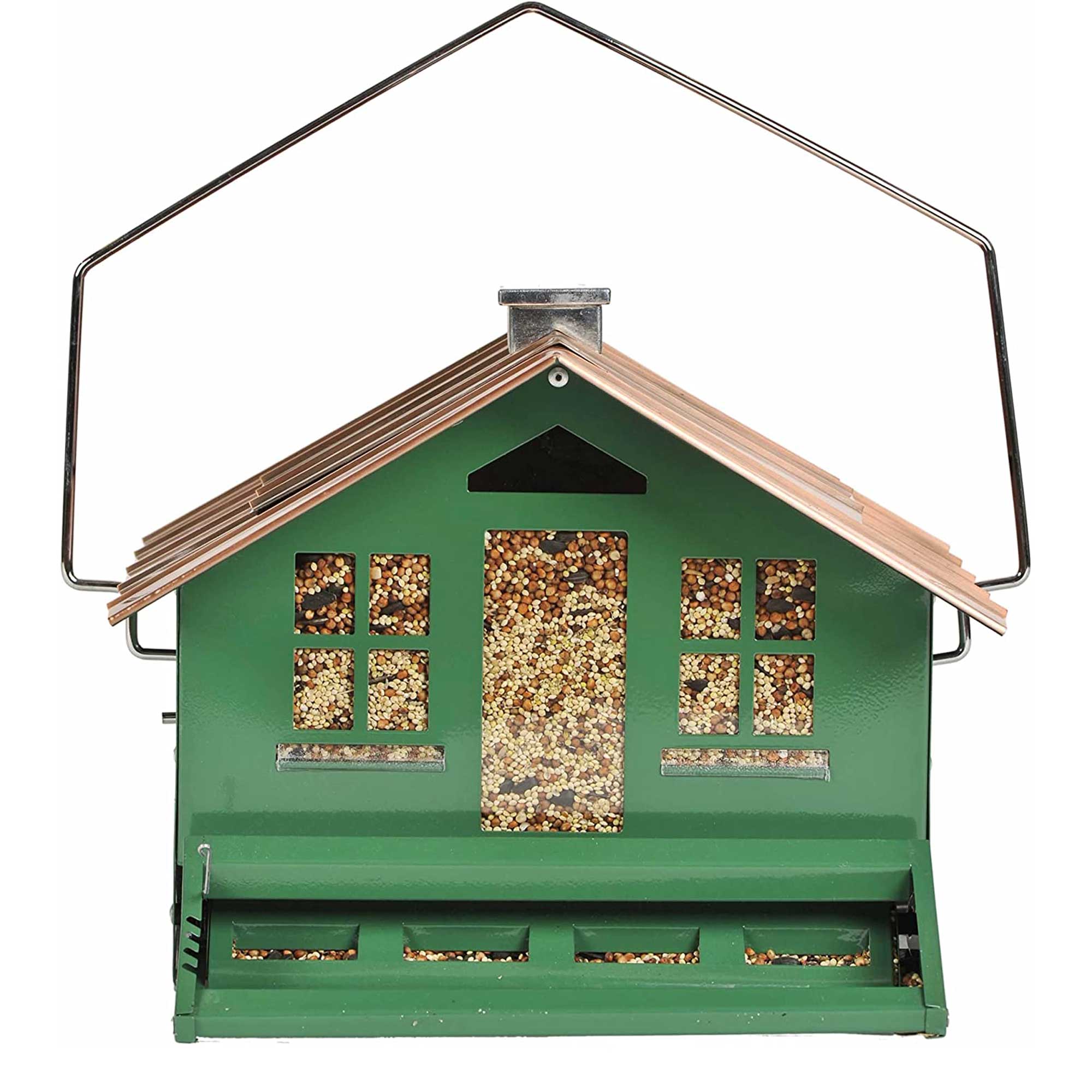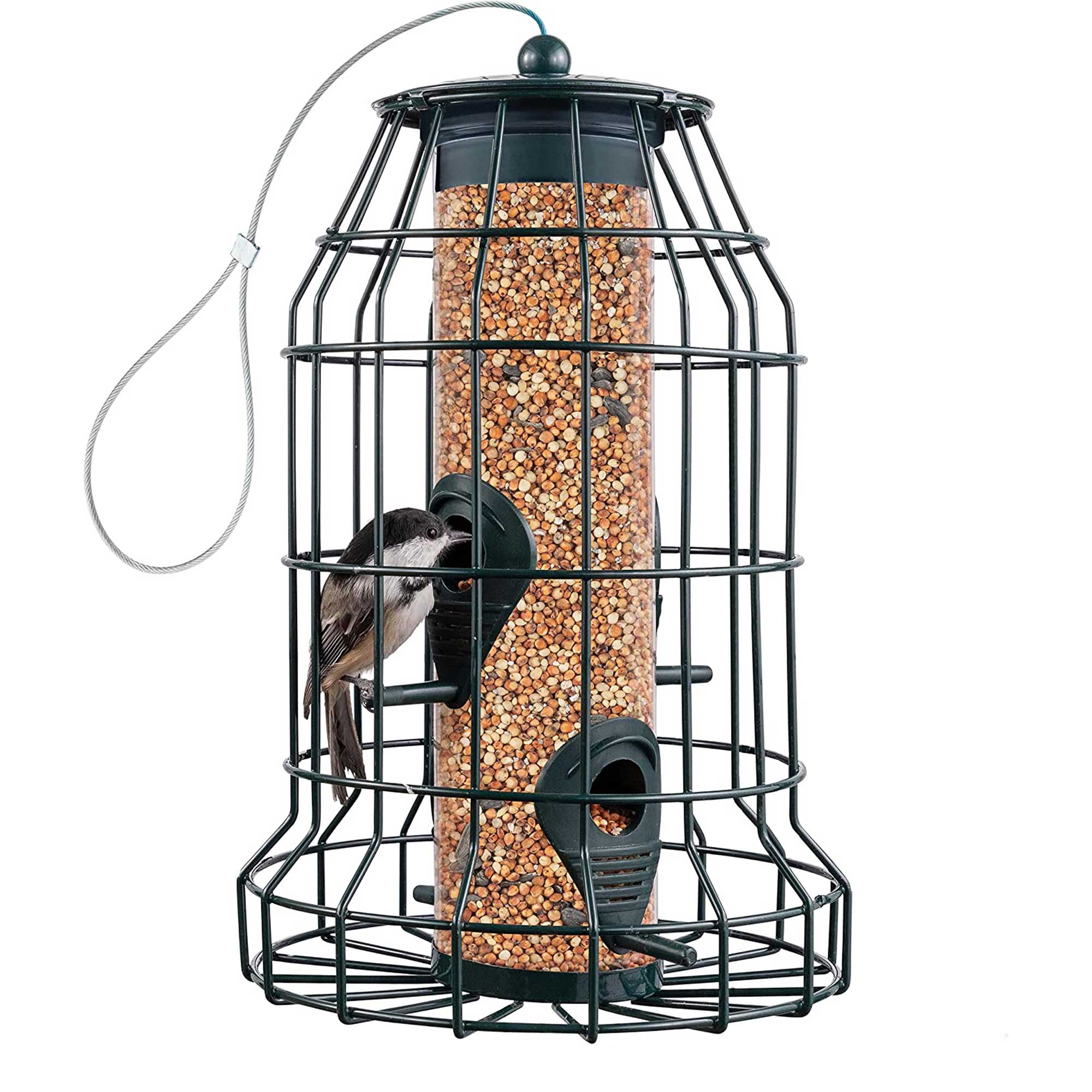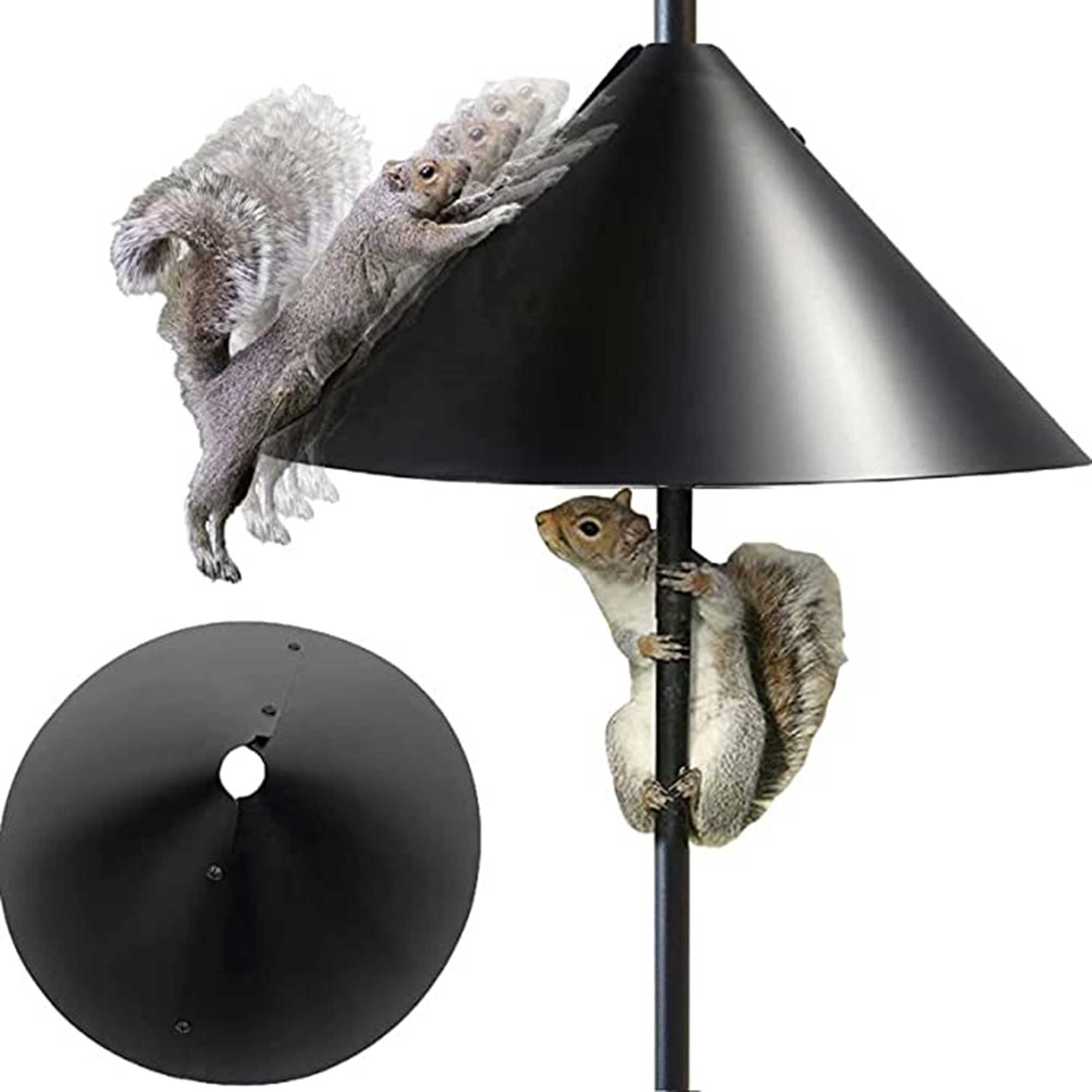7 common bird feeding mistakes to avoid this winter and beyond
Get to know these bird feeding mistakes and keep your backyard visitors happy

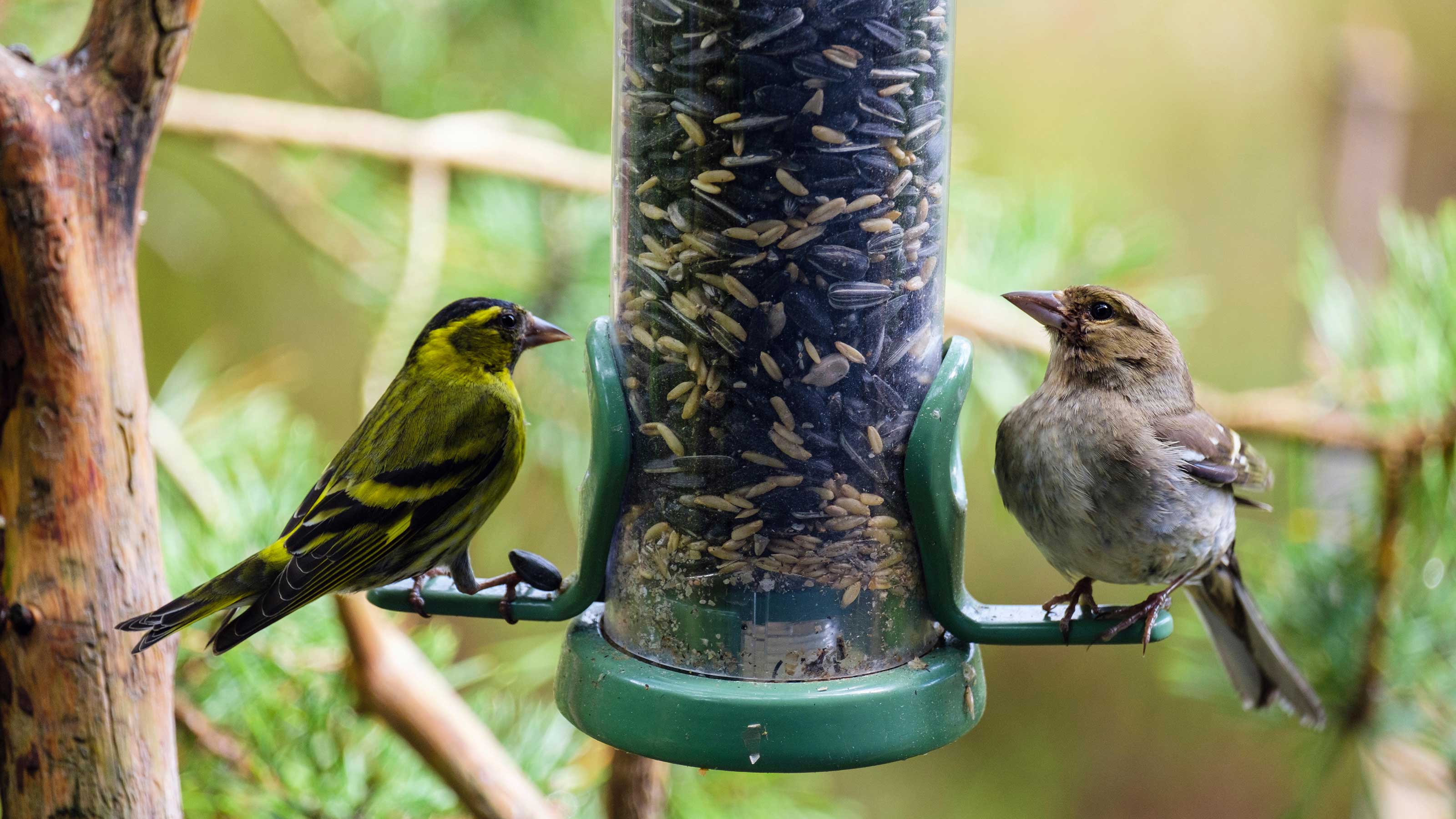
Despite good intentions, there are some common bird feeding mistakes that many gardeners are prone to making. Knowing what they are and avoiding them will give visiting birds the best possible help, which is particularly important during winter's inclement weather.
Putting out bird seed and other nutritious food is one of the easiest wildlife garden ideas to try, and can be done whatever size plot you have. This guide will help you brush up on the dos and don'ts so that you can create a haven for these feathered friends.
Avoid these bird feeding mistakes in your backyard
Get to grips with the following bird feeding mistakes to keep visiting birds happy all year round.
1. Not keeping your bird feeder clean
The RSPB tells us that not cleaning bird feeders regularly is a really important mistake that many people make. 'Feeders naturally attract multiple birds to feed at the same spot, which in turn can lead to the spread of diseases,' they explain.
They recommend cleaning all your feeders weekly, using hot, soapy water and a brush. You can also buy special cleaners online, such as the Carefree Bird House and Feeder Cleaner, available at Amazon.
Make sure the feeder is totally dry before you add any dry food into it again or the food will rot.
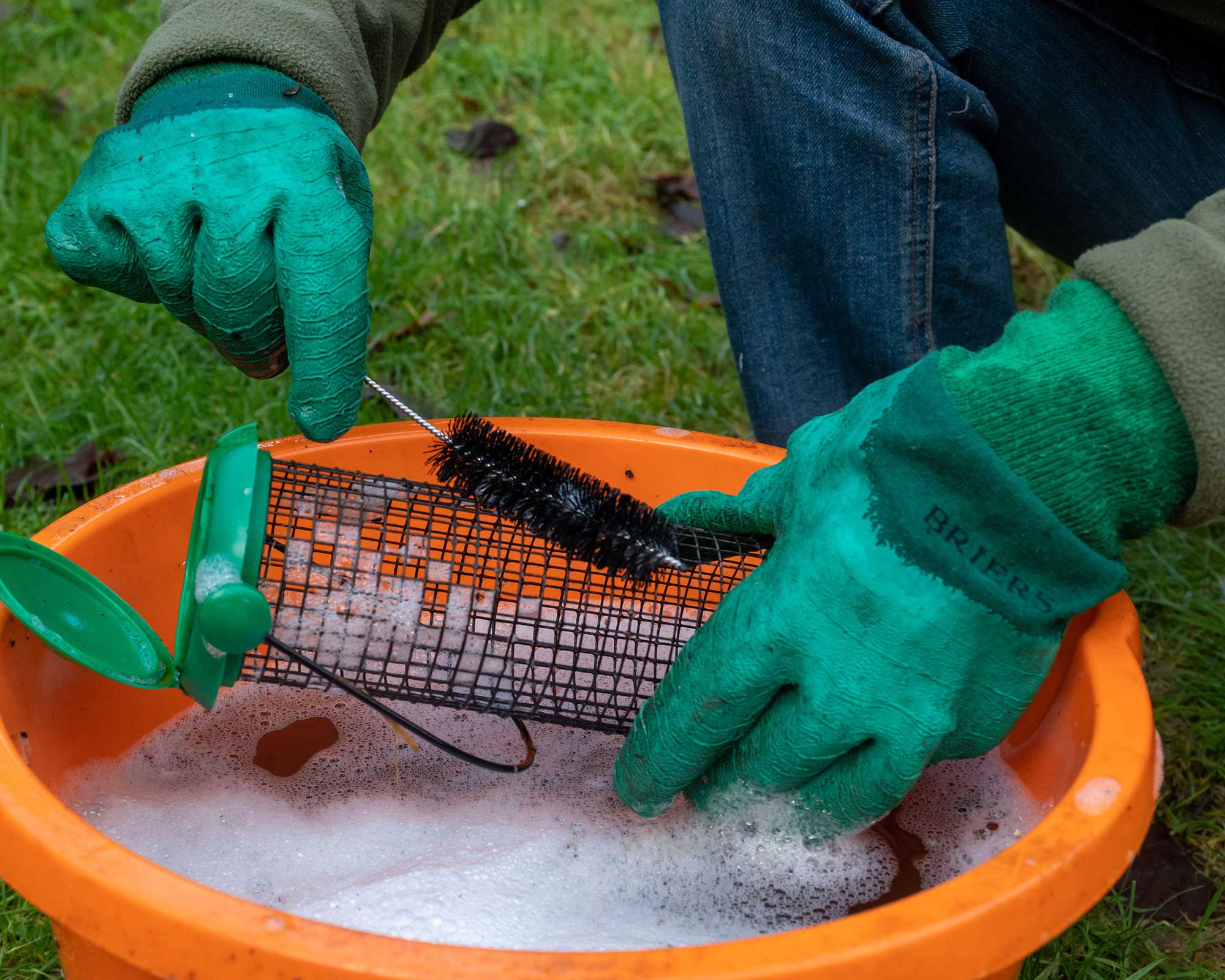
2. Not pest-proofing your bird feeder
It's not just birds that enjoy eating bird food. There are plenty of other creatures interested in the seeds, nuts and fruit you might have left out in your bird feeders, including mice, rats and squirrels.
One way to keep squirrels off bird feeders, as well as other hungry pests, is to invest in pest-proof designs (try Amazon for a selection). Other techniques include hanging bird feeders in locations that are harder for rodents to access, or attaching baffles.
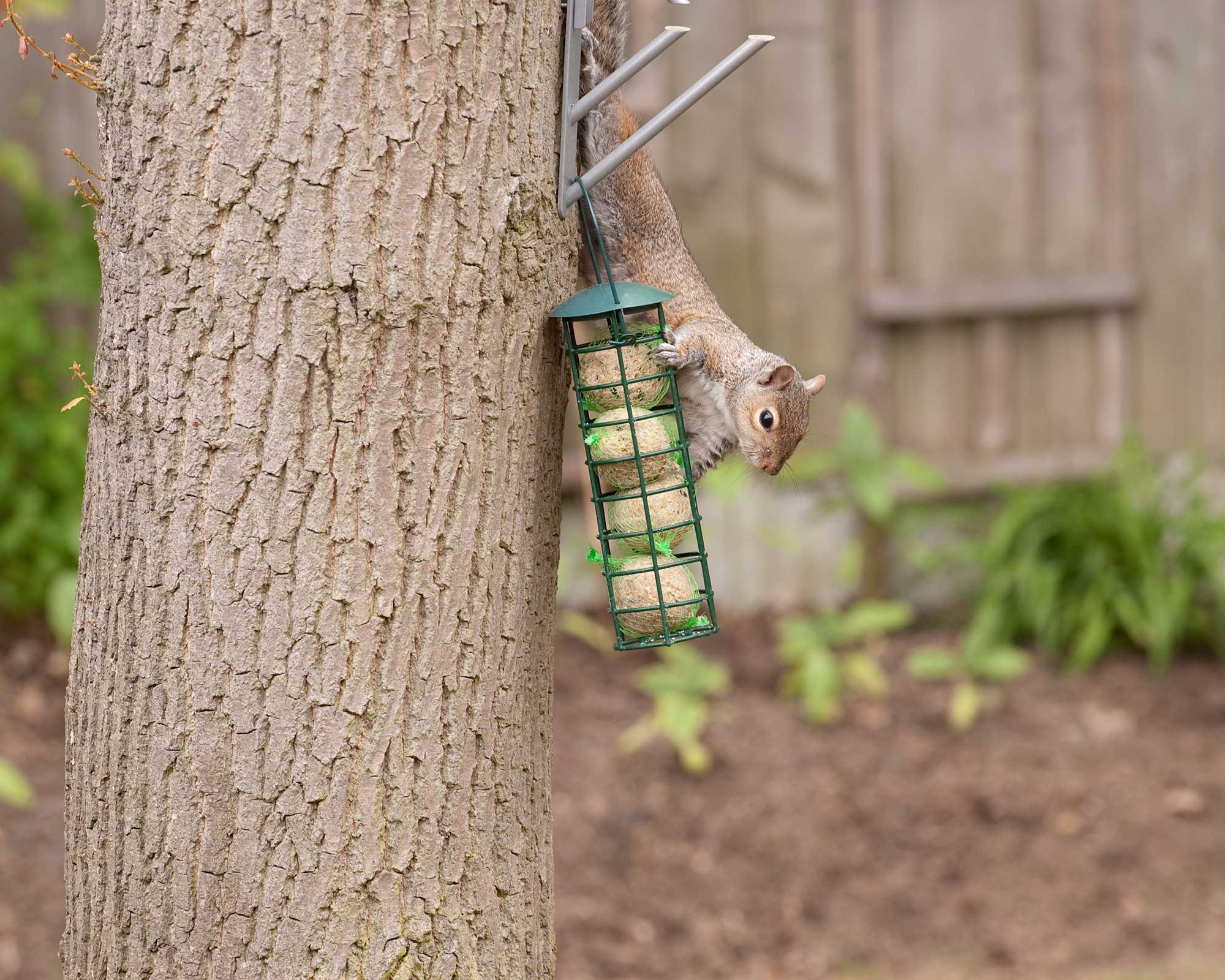
3. Not feeding birds during the winter
Our feathered friends need the most sustenance over winter, when temperatures drop and food is more tricky to find in the wild.
Feeding birds in winter with unsaturated fat and protein-rich foods like peanuts, sunflower seeds and fat balls will help boost their energy and maintain their fat reserves during the cold months – both highly necessary factors that allow them to make it through to spring.
On that note, you don't have to stop feeding them in spring either, as there's no clear-cut schedule for when your winter birds will choose to leave the area.
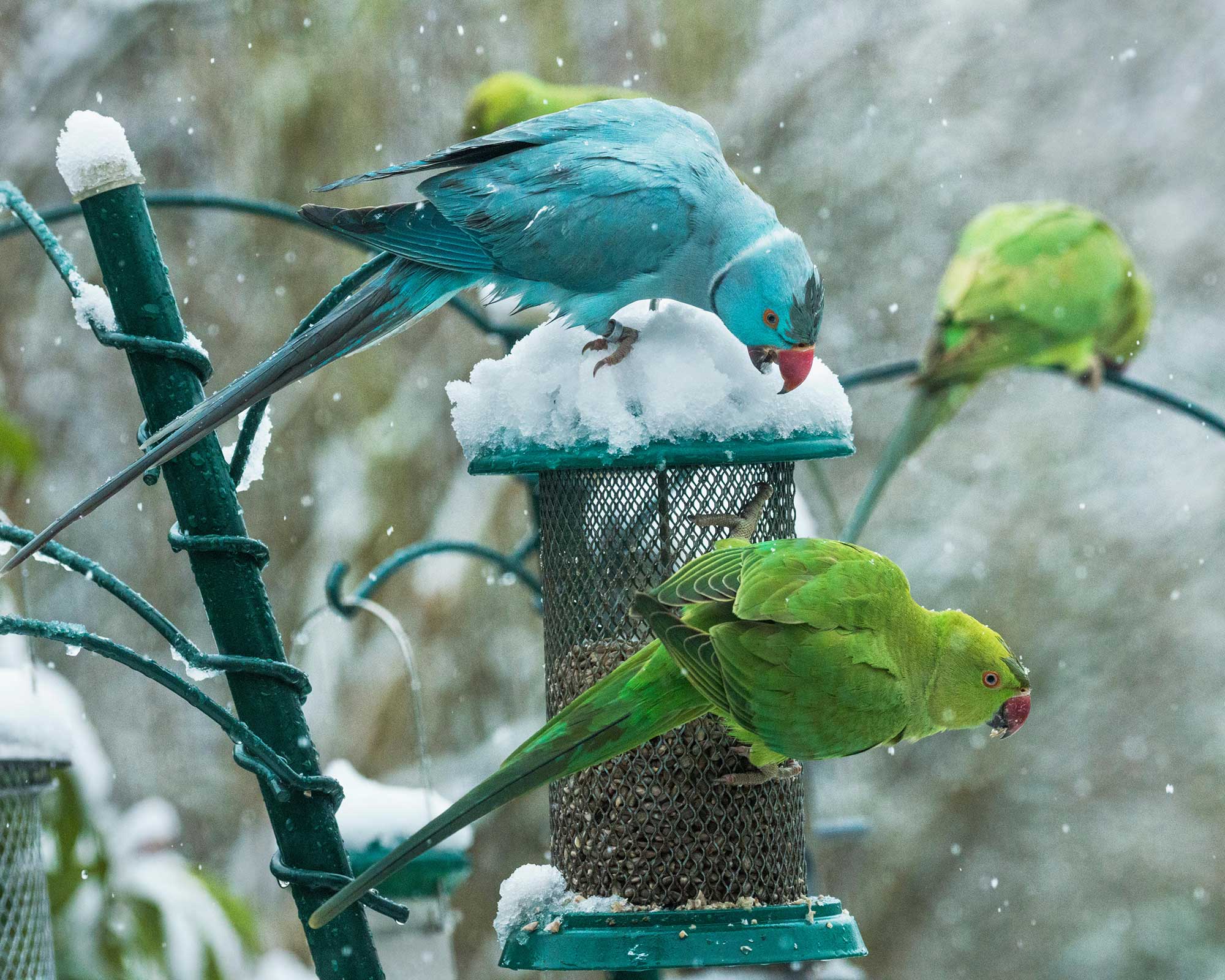
4. Feeding birds the wrong food
Putting out the wrong food is perhaps one of the most easily-made bird feeding mistakes. The primary culprit here is using too-cheap a seed mix, as the cheap ones are predominantly made up of fillers that don't provide requisite nutrients. Named ingredients you want to avoid include wheat, rapeseed, flax and golden or red millet.
The RSPB suggests considering which birds you have in your garden already and which ones you’d like to attract, and then ensuring you are offering the food they like.
Sunflower hearts, available on Amazon, are popular with lots of birds – they’re packed full of oils and fats and have their shells removed so birds expend less energy eating them. Mix up what you offer to attract a wider variety of birds – such as meal worms for robins and nyjer seeds for goldfinches.
You can also learn how to make bird feeders using ingredients such as pine cones, seeds and suet.
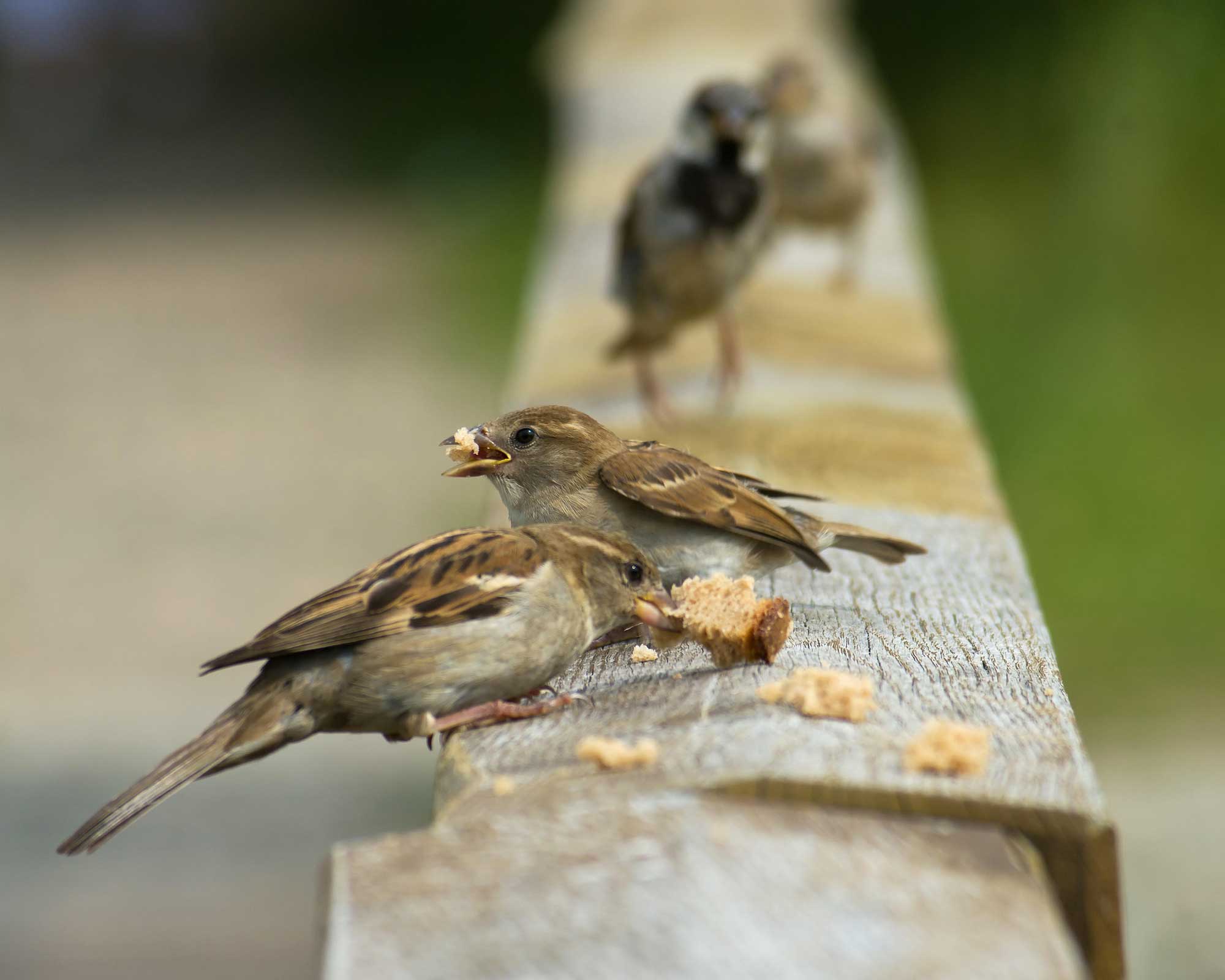
5. Not refilling your bird feeders – or leaving too much food out
If birds return to an empty feeder, it's likely they won't see it as a reliable source of food. With that in mind, try to always keep it filled with food instead of letting it run empty.
However, it's still important to not overwhelm the birds. The RSPB says that it’s better to put out smaller amounts more frequently than fill your feeders to the brim and risk the food spoiling.
It may take birds a while to find your food when you first put feeders out, so start with small amounts and build up as you see more birds visiting.
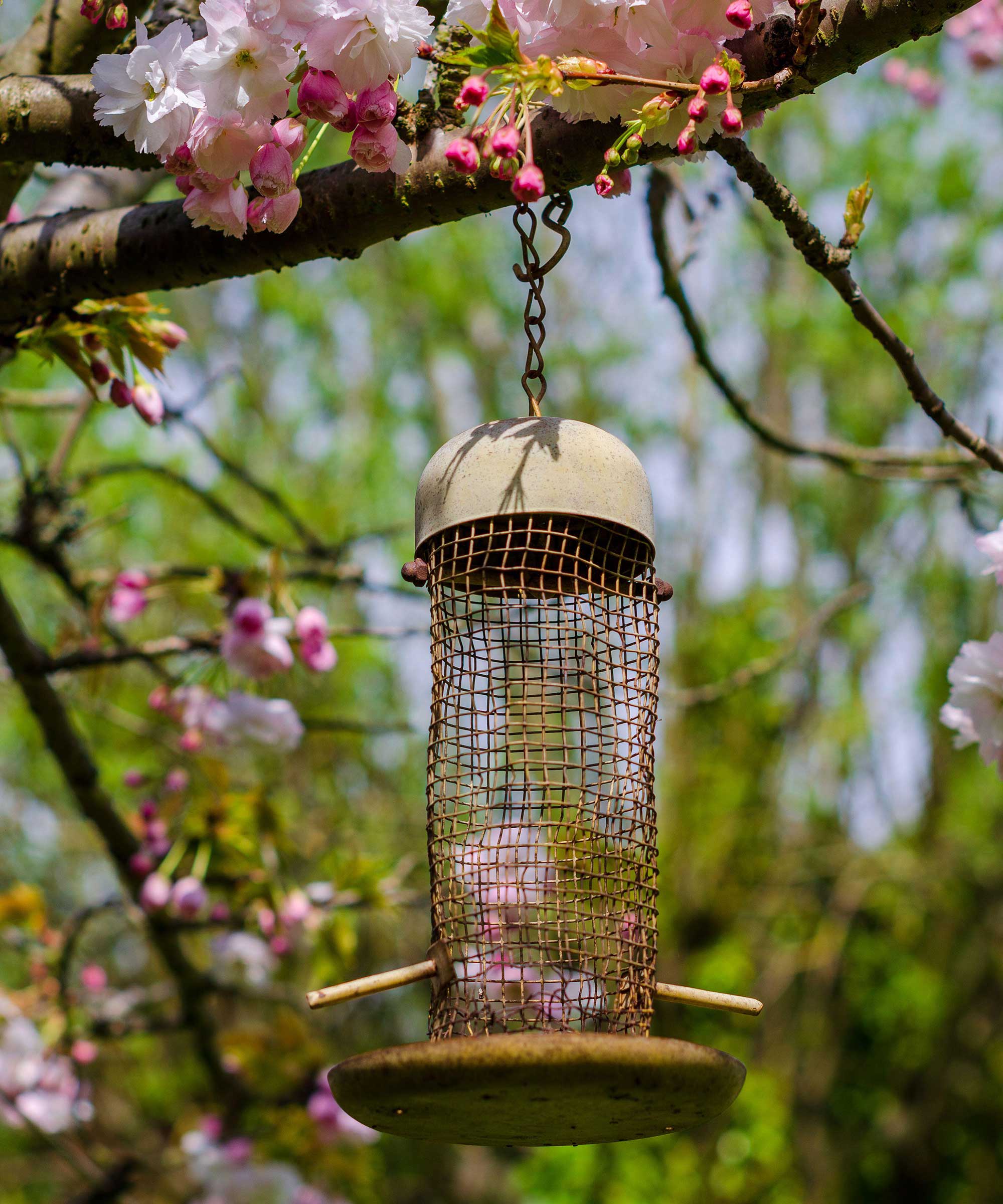
6. Not providing a water source for birds
Don't forget that birds need fresh water every day. Providing fresh water in a shallow container invites them to investigate your yard – they'll spot the light glinting off the water's surface.
You can also make a bird bath in a few simple steps and double the chances of birds visiting your yard to drink and wash their feathers.
Refresh their water regularly (every two to four days), as stagnant water is a breeding ground for bacteria, and keep water out year-round. The RSPB also recommends checking that water hasn't frozen over during the cold months.
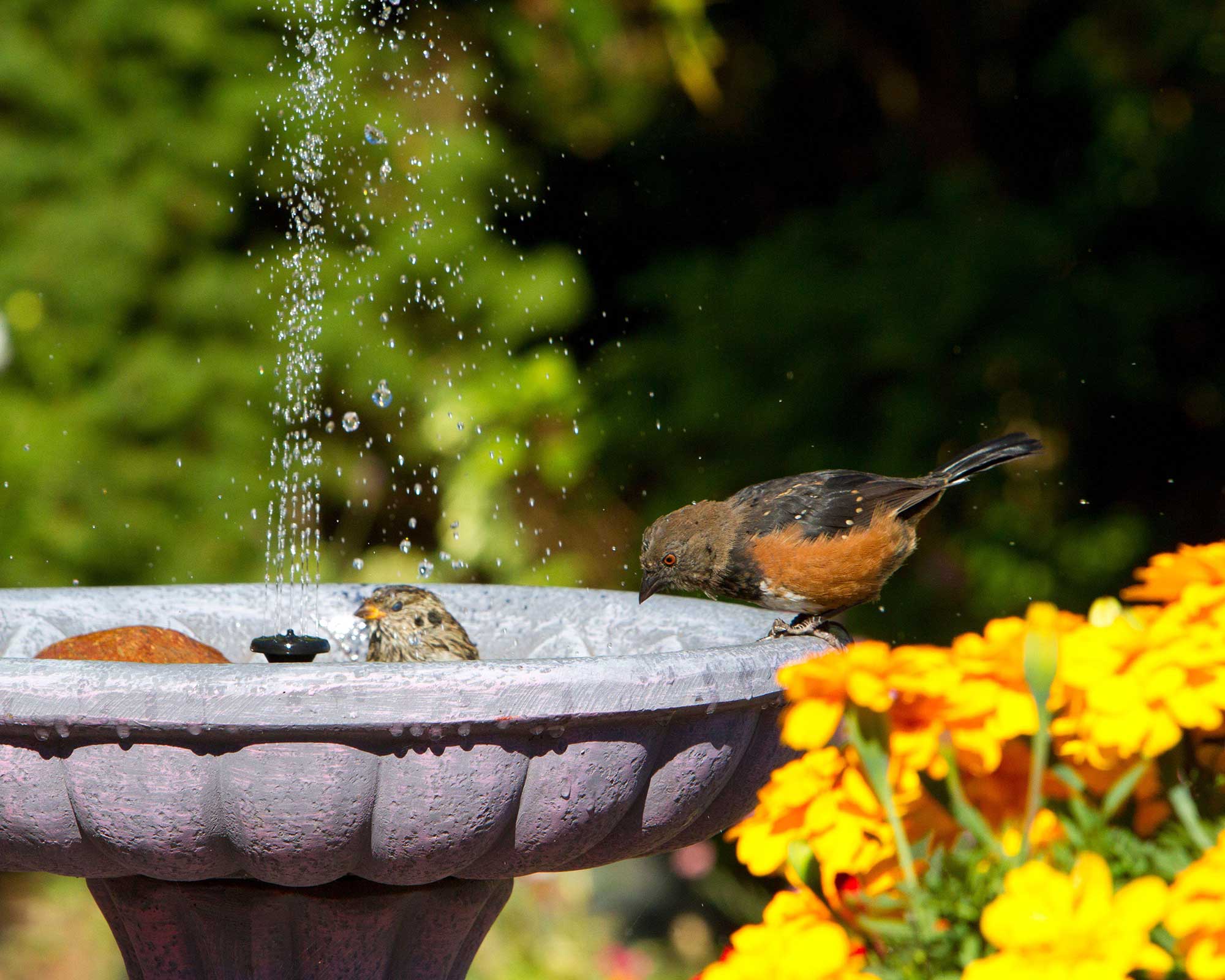
7. Putting your bird feeder in the wrong place
Learning how to attract birds to your garden is more about bird-feeder location than you might think.
The RSPB explains that different birds will use different types of feeders. Hanging bird feeders are ideal for perch-feeding birds like tits, goldfinches, and greenfinches, while ground feeders such as robins and blackbirds prefer their food on a table or on the ground.
Then there's the aspect of safety to bear in mind. The RSPB suggests looking for somewhere close to cover to put your bird feeders – somewhere birds can eat their seeds while feeling somewhat protected from predators.
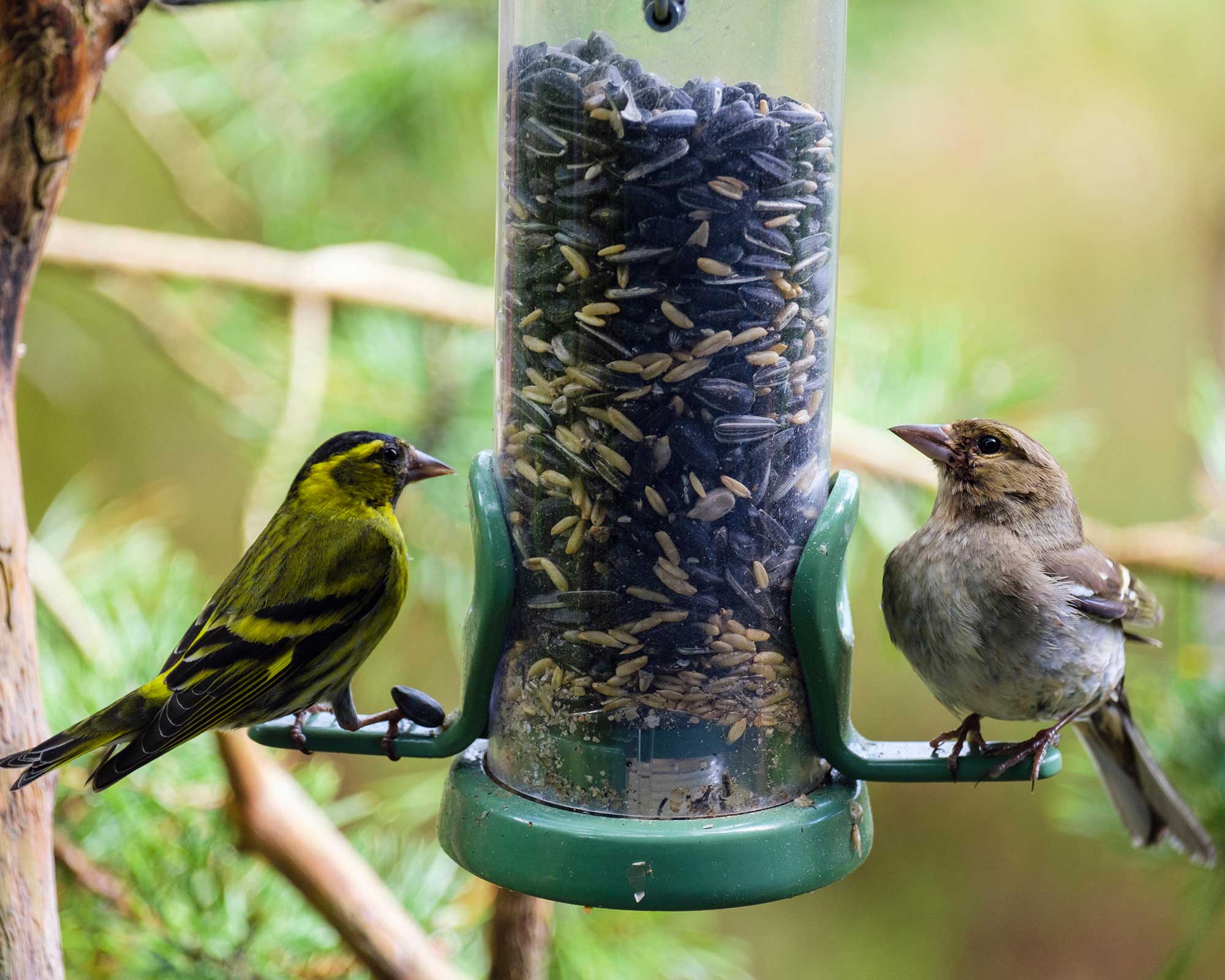

Freelance writer and author Flora Baker is a keen amateur gardener and houseplant enthusiast. Her small garden in South London is a constant work in progress as she gets to grips with snail prevention, DIY trellises and what to plant in shady spots overrun with ivy.
